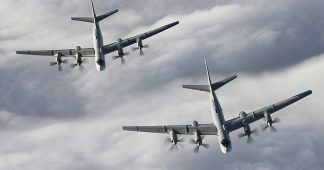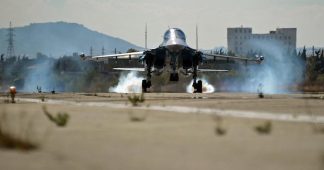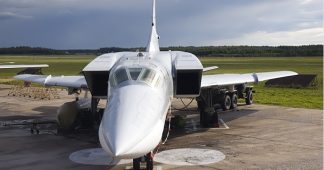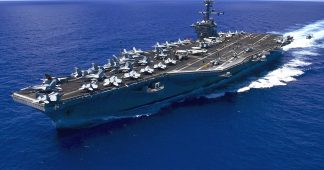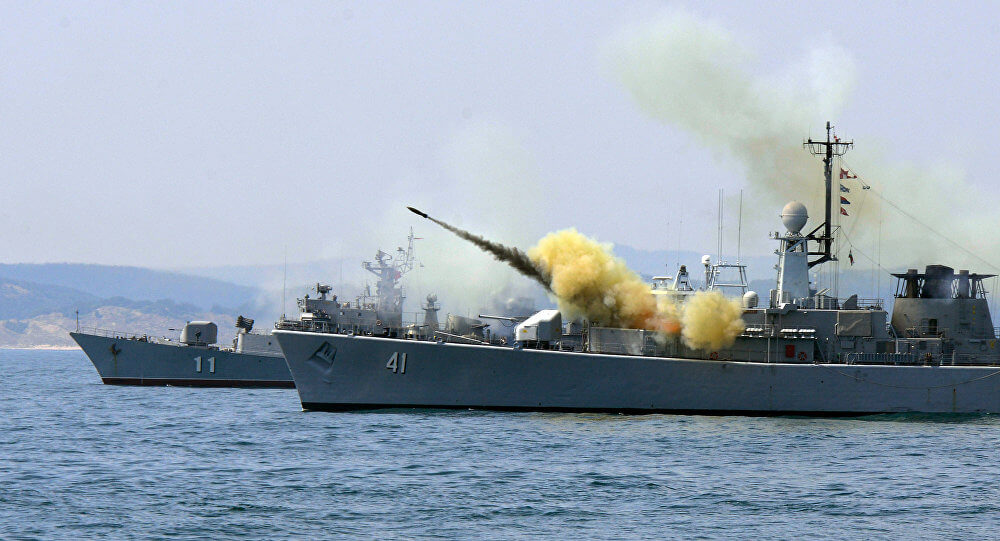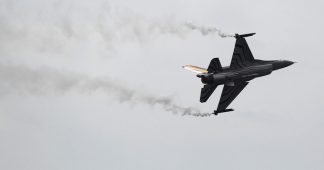Russian bombers & jets intercepted amid routine flight off Alaska coast, US media cries provocation
The Russian pilots were performing one of the routine long-haul flights over international waters which, apart from the Pacific, are also carried out over the Atlantic and the Arctic Oceans, and the Black Sea. At no time do these flights violate any nation’s borders or international rules, the ministry said.
The four planes, which were intercepted off the west coast off Alaska, were maneuvering in a “safe and professional” manner, North American Aerospace Defense Command (NORAD) spokesperson Capt. Ashleigh Peck told Sputnik news agency.
Responding to RT’s comment request on Thursday, NORAD spokesperson Major Jamie Davis confirmed that two US Air Force F-22 stealth fighter jets were scrambled after the group spotted flying near and then entering the Alaskan Air Defense Identification Zone (ADIZ), which extends into neutral waters.
The bombers and fighter jets were “visibly identified” and “intercepted” by the US aircraft at 5pm on Wednesday [1am GMT], Davis said, adding that the Russian warplanes at no point breached US airspace and were flying within international airspace at all times.
Neither of the spokespersons disclosed the distance between US and Russian aircraft at the time of the intercept, but Peck has described the encounter as an unproblematic routine interaction.
Plane with Russian journalists on way to Peru tracked by Swiss fighter jets https://t.co/TGHqjOmmwT pic.twitter.com/CKmfmY9iut
— RT (@RT_com) November 19, 2016
“That is not unprecedented. We have done it about 60 times since 2007,” Peck said.
ADIZ is defined as a zone where the US requires civilian aircraft to identify its planned course and destination, or else the jets are scrambled to intercept and escort the aircraft potentially entering the US airspace. The US does not claim sovereignty over international waters that ADIZ overlaps, so in theory other nations’ aircraft practicing their scheduled military flights with no intention to enter US airspace are visually identified and left to carry out their routine.
However, the reaction to such flights depends on the political conjecture, apparently reflected in Western media reports.
Fox News broke the story about the Russian Air Force group on Thursday, saying that the aircraft “entered Alaska’s Air Defense Zone” and “prompted Air Force escort.” In the same article, the outlet seemingly refers to the routine Russian flights near Alaska as “recent Russian provocations,” saying that late in April “Russian bombers flew near Alaska over four consecutive days for the first time since 2014.”
The report adds, however, that the US jets were already in the air on a patrol mission some 50 miles southwest of the area of Chariot, on the coast of the Chukchi Sea, when tasked with identifying the Russian jets. It cites US officials as saying that the Russian warplanes were unarmed at the time of the encounter.
The iconic Soviet-built Tu-95 bombers, which for decades have been making long-haul flights and have frequent encounters with intercepting US jets, have been recently used by Moscow to hit terrorist targets in Syria. In February, the bombers struck Islamic State’s training camps, bases and a command center in the Raqqa region with X-101 cruise missiles flying from Russia through Iran and Iraq to Syria.
Two Tu-95s were previously intercepted by F-22s on April 17 some 100 miles from Alaska’s Kodiak Island. The Pentagon said the bombers were escorted for the full 12 minutes by US jets as they were in international airspace, with spokesman Navy Commander Gary Ross noting their “safe and professional” conduct.
Moscow used to previously express surprise at what appears to be an overzealous practice by some NATO members to track and intercept Russian planes in international airspace.
In February, after two Russian Tu-160 strategic bombers were monitored by Royal Air Force jets northeast of Britain, Defense Ministry spokesman Maj. Gen Igor Konashenkov stressed that Russia is baffled by such attention given to the routine flights, with the media making them into “the main news of the day.”
